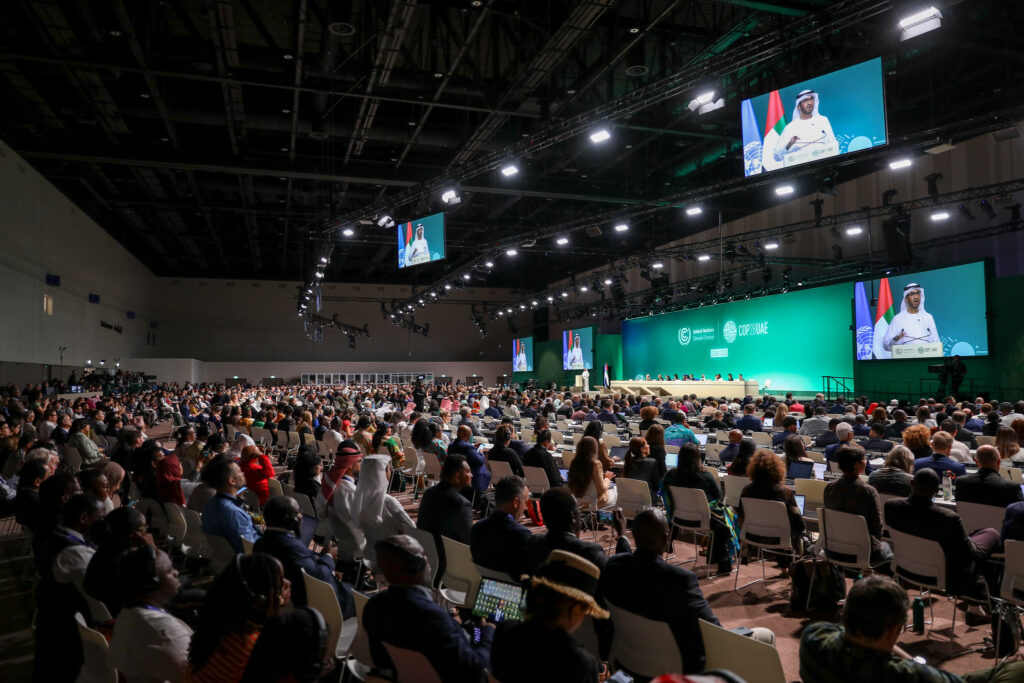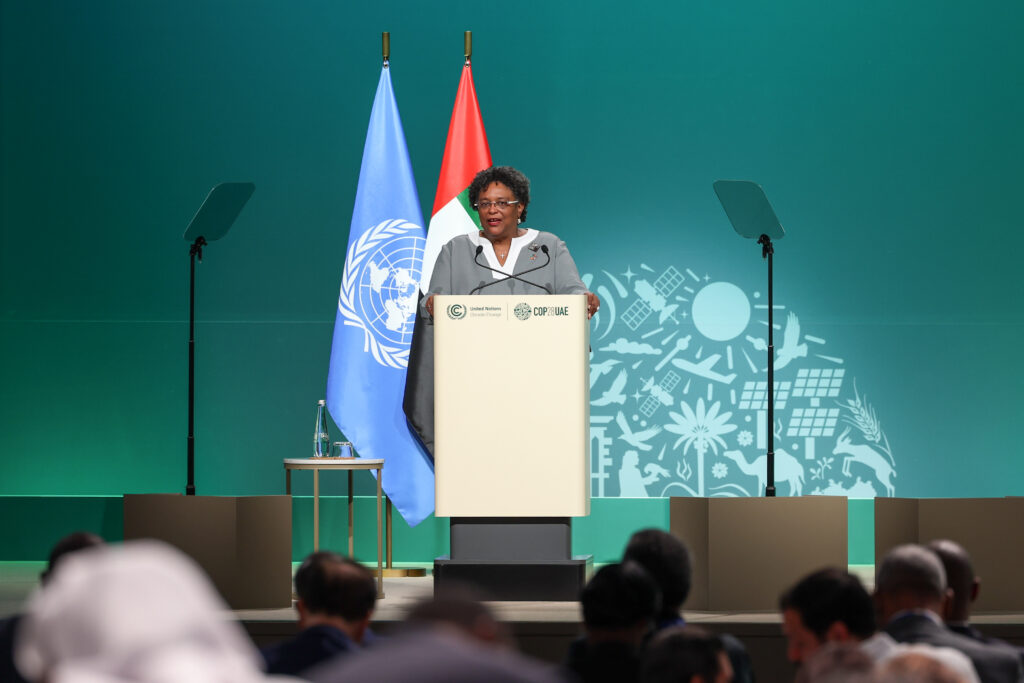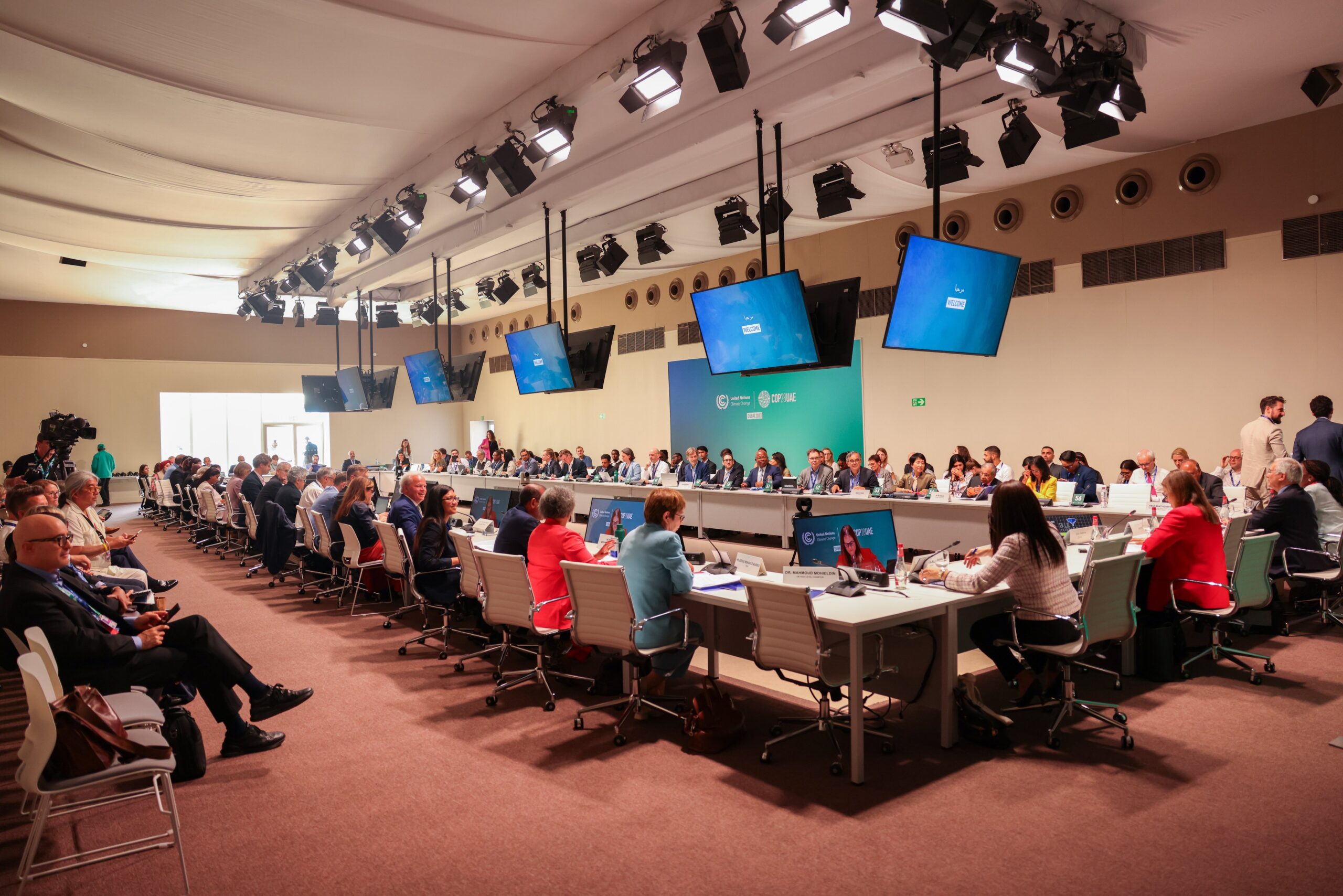

The decision to operationalize the fund came on the opening day of the United Nations Climate Change Conference, held in Dubai, United Arab Emirates (UAE), from November 30 to December 13. Although some other issues would prove to be contentious over the course of the conference, this one was not.
Countries had agreed last year to establish the fund (see Paying for Climate Change), with the goal of putting it into operation at this year’s conference. A so-called transitional committee met five times over the past year to craft a framework under which the fund could operate.
A major point of contention in Dubai had to do with language related to the future of fossil fuels. After long, hard negotiations that extended COP28 a day past the scheduled close, the final agreement calls for “transitioning away from fossil fuels in energy systems, in a just, orderly and equitable manner, accelerating action in this critical decade, so as to achieve net zero by 2050 in keeping with the science.” Read the full text of the agreement here.
UN Secretary-General António Guterres hailed the fund as “an essential tool for delivering climate justice” and urged leaders to make generous contributions.
The UAE and Germany pledged USD $100 million each for the new fund, and the European Union pledged an additional $145 million on top of Germany’s contribution. Other initial pledges were announced by the United Kingdom ($51 million), the United States ($17.5 million), and Japan ($10 million).
Prime Minister Mia Mottley of Barbados, who in recent years has been one of the world’s most prominent voices on climate finance, stressed the need to ensure that the new fund is “properly capitalized.”
And the loss-and-damage issue is only part of the equation, she told fellow leaders, since countries also need adaptation funding before disasters strike. For every $1 countries invest before a disaster, they can save $7 in damage and loss of lives, she said.
As she has before, Mottley advocated for new approaches to climate finance, including a recognition that non-state actors must do their part. “If not, we will not make it possible for countries to access the funds necessary to avoid the damage,” she said.

Prime Minister Mottley of Barbados has called for oil companies to contribute a portion of their profits for climate finance. Credit: Christopher Pike.
Under the agreement approved in Dubai, the new fund will be serviced by an independent secretariat and governed by a 26-member board, and parties should submit board nominations by the end of January. The board is to include 12 members from developed countries; three from each of three regional groups (Asia-Pacific, Africa, Latin America and the Caribbean); two from small island developing states; and one from a developing country not included in these groups and constituencies. The World Bank will host the fund for an interim period of four years.

Negotiators at COP28 focused on how to unlock climate finance and mobilize investment. Credit: UN Climate Change Conference of Parties.
Several climate organizations issued statements welcoming the new fund but stressing that much larger sums would be needed to meet the moment.
“The loss and damage fund will be a lifeline to people in their darkest hour, enabling families to rebuild their homes after disaster strikes, support farmers when their crops are wiped out and relocate those that become permanently displaced by rising seas,” said Ani Dasgupta, President and CEO of the World Resources Institute.
“The success of this fund will depend on the speed and scale at which the funds start flowing to people in need,” he added. “People in vulnerable countries will face up to $580 billion in climate-related damages in 2030 and this number will only continue to grow.”
Harjeet Singh of Climate Action Network International expressed concern about “the absence of a defined replenishment cycle” to ensure the fund’s sustainability.
“The responsibility now lies with affluent nations to meet their financial obligations in a manner proportionate to their role in the climate crisis, which has been primarily driven by decades of unrestrained fossil fuel consumption and a lack of adequate climate finance delivered to the Global South,” he said.
Joe Thwaites of the Natural Resources Council said that “all wealthy and high-emitting countries now have a responsibility to step up and contribute to the fund.” And, he noted, contributions can come from other sources as well.
“Fossil fuel companies that have done the most to drive the climate crisis should also contribute—and if they do not do so voluntarily, governments should compel them to,” he said.
Prime Minister Mottley, for her part, has called for oil and gas companies to contribute a percentage of their profits for climate funding—and to fix the leaks in their pipelines and stop the flaring of methane. She has also identified international shipping as another significant potential source of funding, as well as a small surcharge on international air travel.
The world needs long-term capital, she said, and it needs to keep global warming below 1.5 degrees Celsius above preindustrial levels—the goal established in the 2015 Paris Agreement. Mottley pointed out that one-third of the days this year exceeded that threshold.
“The reality is that unless we change course and adopt the policies that can in fact help mitigate that increase in temperatures, we are going to see far more lives lost and far more damage done,” she said.
 View Map
View Map